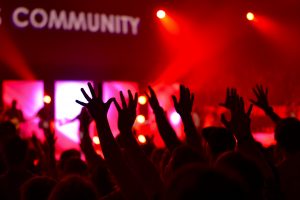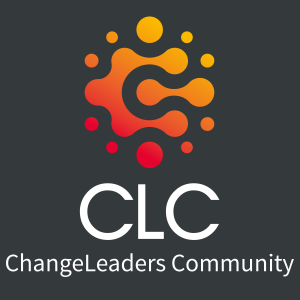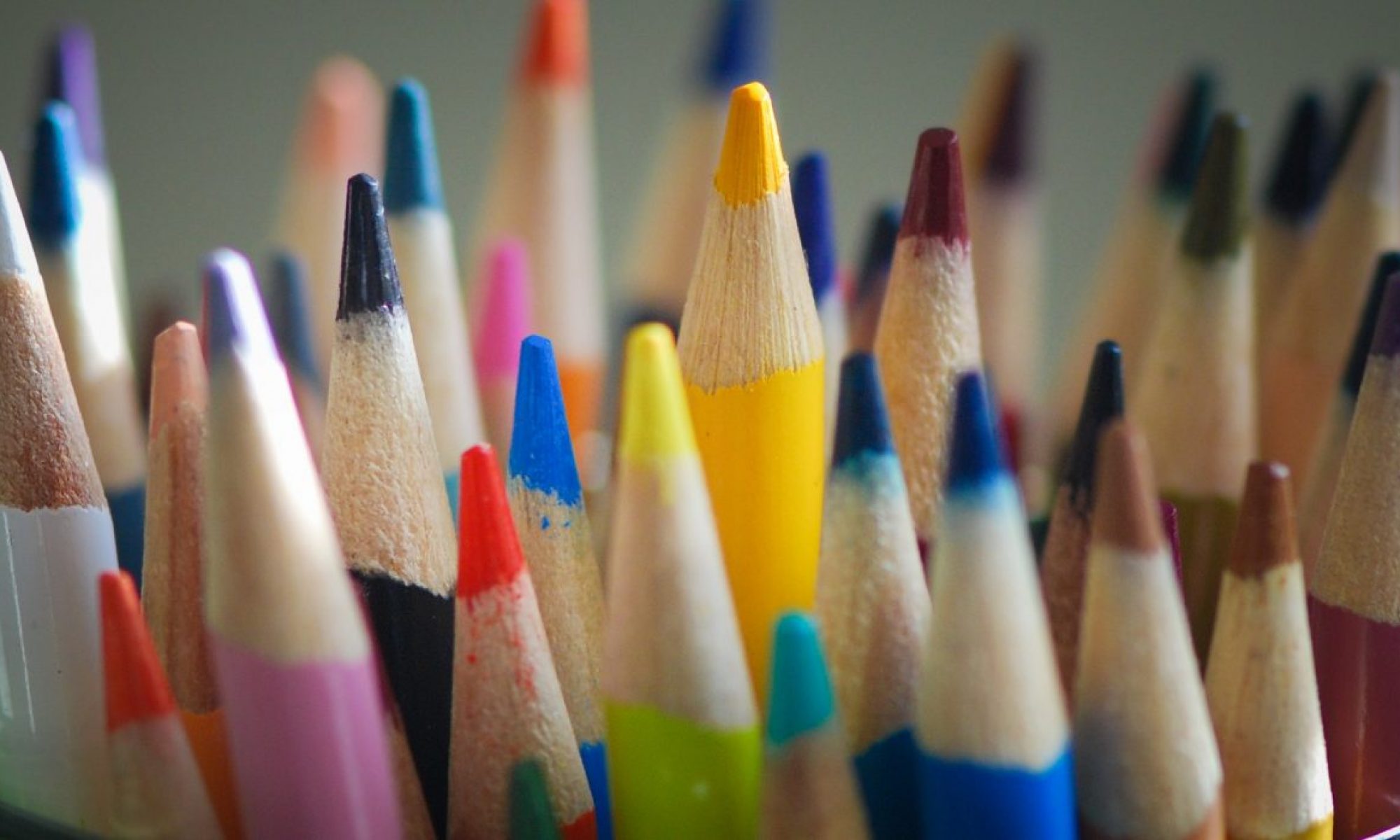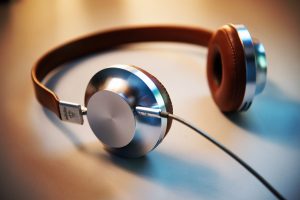
Photo by William White via Unsplash
For the past several weeks, I’ve been working with one of the finest teams in educational leadership and innovative teaching & learning, and I’m pretty darn excited about it.
That team is Modern Learners.
If you’re not familiar with the work of Will Richardson, Bruce Dixon, and Missy Emler, be sure to visit Modern Learners now and listen to their podcasts, read the Shifting Conversations content, and get to know the lenses through which school leaders should seek to bring together shifts in beliefs and changes in practice, all influenced by the context of the world we’re living in today.
So what have we been up to? Will, Bruce, and Missy have ignited a spark in educational leaders through their work in Change.School, “a powerful 8-week online experience for educational leaders who are serious about designing and creating relevant, sustainable change in their schools and districts.” Change.School participants are serious, dedicated, innovative leaders who are looking to move their schools forward in powerful ways. As a result of the work in those cohorts, the need became apparent for a space where fellow administrative colleagues, building-level leaders, and teacher leaders could come together and delve into issues and ideas relevant for today’s school leaders.
Enter ChangeLeaders Community:
“Where courageous educational leaders get real about learning and schooling.”

Networks are really important to me. I’m not the educator I was ten years ago, and connected learning is one of the reasons why. The ideals of connectivism really resonate with me, and I don’t think you can be a successful leader without a formidable, knowledgeable, supportive network. That being said, many educators have, in recent years, embraced the idea of developing a Personal Learning Network aka PLN, and using the connections made via social networks (Twitter, Facebook, Google+ to name a few), to support their learning and professional development. (If you are new to connected learning, be sure to read Why do I need to reinvent my PLN? and My Personal Learning Network is the most awesomest thing ever! to ground yourself as you continue navigating these waters.)
For the past two years or so, I’ve felt kind of meh about PLN-ing. Interactions from typical social spaces haven’t done much to influence my thinking and learning. There has to be more. It’s been hard for me to get excited about what I read, see, and experience in Twitter and on Facebook, even in groups dedicated to educational chit-chat.
And why is that?
Because networks are not communities, and well-crafted communities better support learning.
Networks are important, of course, because with every connection made, collective knowledge can emerge. In Network vs. Community by Clint LaLonde (2010), he shares a remark by George Siemens who attempts to distinguish between networks and communities. In short, there are more explicit norms and expectations for participation in communities. And in ChangeLeaders, we expect participation from our members and know that our community will thrive on member contributions!
Will our ChangeLeaders Community develop into a true community of practice? Our hope is, yes. A community of practice as defined by Wenger: “Communities of practice are groups of people who share a concern or a passion for something they do and learn how to do it better as they interact regularly.” As Downes (2007) states, “Learning, in other words, occurs in communities, where the practice of learning is the participation in the community. A learning activity is, in essence, a conversation undertaken between the learner and other members of the community.”
CLC is about conversations, learning, and change.
So, here’s the thing. ChangeLeaders Community is something you subscribe to, and after your 30-day free trial ends, there’s a cost. That immediately turns some people off, and it causes others to shy away who, in my opinion, don’t stop to consider that the small expense is actually a huge investment in one’s own professional growth and learning. I use a number of free digital tools in my work and learning, but I have no problem paying for others that add value to my life. Good (usually) ain’t free.
The ChangeLeaders Facebook group was not a true learning community. It lacked versatile tools and capabilities to propel learning forward for its members. And, it seems as though every day, I see one or more of my Facebook friends jumping ship. Because Facebook. Through the ever-changing feeds and advertisements and algorithms, learning gets lost. And you’re bombarded with distractions.
CLC is a space that eliminates the clutter and allows its members to focus on the task at hand: How do I grow as a learner so I can ignite change in my organization? That can happen through the use of Mighty Networks and the continuing contributions of its members (over 300 members thus far!)
A CLC subscription is far less than a few Starbucks visits each month or a magazine subscription or the purchase of one of the latest educational fad/innovation books or a membership to a professional learning organization that you may or may not get any actual benefit from. We’re confident that through your willingness to engage in our community, you’re going to be challenged in your thinking and make real strides towards change, far more so than you could ever achieve in “free” spaces like Twitter or Facebook groups.
What will we explore in ChangeLeaders Community?
- What learning is and what it isn’t, and the gap between what we know and believe about how we learn best and what we actually do in schools.
- The trends, technologies, and changes happening in the world that really matter to our work in schools and that we need to understand in depth.
- How educational leaders are building their own capacities to lead change in their communities.
- What reimagined, modern practice in schools looks and feels like.
ChangeLeaders Community offers
- a space where you can find signal among the noise – carefully curated content in a dynamic interface that fully engages participants and acknowledges the importance of their contributions in this space
- jargon-free, buzzword-free, platitude-free discussions focused on change
- critical friends who will challenge your thinking and support your change efforts
- contributions not only by community members, but also by Will Richardson & Bruce Dixon in their Shifting Conversations posts
- frequent, live collaborative sessions via Zoom, during which members can come together, build relationships, and tackle difficult change issues (Monday, October 23, 8 PM ET- you won’t want to miss “ChangeLeadership: Laying the Foundations for Creating Relevant, Sustainable Change in Schools” led by Will & Bruce!
- the opportunity to reflect on practice, set goals and develop artifacts demonstrating professional growth, all while supported by a group of critical friends and colleagues
- perhaps even a bit of fun!?
We hope you will courageously join us, we really do. But if you don’t, no matter which networks you frequent and spaces you visit, be sure to participate. Give back. Often. Because as Siemens says,
Being connected, without creating and contributing, is a self-focused, self-centered state. I’ve ranted about this before, but there is never a good time to be a lurker. Lurking=taking. The concept of legitimate peripheral participation sounds very nice, but is actually negative. Even when we are newcomers in a network or community, we should be creating and sharing our growing understanding.
Welcome to Change, Leaders! Let’s create some change.
-Lyn Hilt, ChangeLeaders Community Manager
![]()



